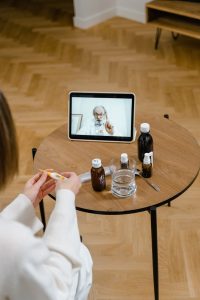One of the tasks of marketing professionals is to anticipate and respond to changing customer attitudes, preferences and behaviour. As each new generation emerges into adulthood (as consumers and employees) researchers and trends forecasters try to pinpoint what makes them different from those who came before. They give labels to these generations – Boomers, Generation X, Generation Y (sometimes called ‘Millennials), and now Generation Z (‘Zoomers’) – to emphasise the idea that they embody distinctive characteristics.
The most recent of these groups, Generation Z (the cohort born between 1995-2010 that is beginning to enter the workplace) is therefore attracting plenty of articles about what its attitudes to social issues, gender politics and the workplace mean for corporations, brands and other institutions. Whilst it is dangerous to make sweeping generalisations about generational differences – values and beliefs tend to cut across generations, making age less an indicator of attitudes and behaviour than other factors such as education and economic circumstances – there are facts about Generation Z that are incontestable. In most developed markets, this group is more racially diverse than previous generations and have a worldview shaped by the perils of climate change, high levels of student debt and more recently by the pandemic.
Taking their mental health seriously
Research by Vice Media in the aftermath of the first wave of Covid-19 lockdowns suggested that younger people around the world have become more focused on their health and especially their mental wellbeing, with 52% of Millennials/Gen Z (in 30 countries) claiming that they will spend more time on fitness, 20% taking-up meditation and 60% agreeing with the statement that “the way we take care of our health will be the most lasting societal change after this pandemic.”[1] Mental health challenges affect people of all ages, but it is the willingness or confidence of the younger generation to be vocal about the issue that has helped elevate the importance of mental health as a lifestyle and workplace issue.
Social media as the primary source of information and guidance
 Generation Z cannot remember a time when social media was not an integral part of their lives – Facebook was launched in 1994, Instagram in 2010 – which inevitably means that they tend to use social media as their primary source of information and guidance. A recent global survey undertaken by UNICEF for The Changing Child Project revealed that 45% of 15-14s in 21 countries used social media to ‘stay informed about current events’ compared to 17% of over 40s.[2] Try explaining to your average 20-year-old why you watch the national broadcast news at a set time of the day, and they will roll their eyes at your strange behaviour.
Generation Z cannot remember a time when social media was not an integral part of their lives – Facebook was launched in 1994, Instagram in 2010 – which inevitably means that they tend to use social media as their primary source of information and guidance. A recent global survey undertaken by UNICEF for The Changing Child Project revealed that 45% of 15-14s in 21 countries used social media to ‘stay informed about current events’ compared to 17% of over 40s.[2] Try explaining to your average 20-year-old why you watch the national broadcast news at a set time of the day, and they will roll their eyes at your strange behaviour.
Not surprisingly, younger people use social media for healthcare information. A recent survey indicated that younger consumers like to supplement the information they receive from healthcare professionals with their own online research – 28% of Gen Z and 21% of Millennials want to get their healthcare information from social media, compared to only 3% of Boomers (those born before 1964).[3] Healthcare professionals have been quick to spot this trend; hence the use of TikTok tutorials to explain the importance of Covid vaccines.
Concerns have been expressed about the dangers of young people being exposed to social media misinformation, but studies have shown that Generation Z is wary about the information they receive. In the UNICEF study referenced early, only 17% of 15-24s claimed to ‘trust social media a lot’, compared to much higher levels of trust in doctors and healthcare workers (61%), scientists (56%) and friends and family (45%).[4] A generation that has grown-up with social media has a finely tuned ability to spot misinformation and ‘fake news’, which explains why a US study in 2019 showed that older people were four times more likely to share fake news on Facebook than younger generations.[5]
Healthcare on-demand
The expectations of Gen Z consumers, who have grown up in a world of instant access to information and rapid online delivery, provide challenges for the providers of healthcare services. A report by Accenture has shown how younger consumers (Gen Z and Millennials) are the most dissatisfied with the quality of traditional healthcare services. The report’s authors suggest that ‘As these younger generations age and have greater healthcare needs, they will increasingly look for services to satisfy their expectations for effectiveness, convenience, efficiency and transparency.’[6] It has been suggested in the UK that one factor in the growing demand on A&E services is the demand of younger patients for instant care.
Early adopters of telemedicine
 New forms of telemedicine clearly play a part in addressing this need for on-demand care, which is why younger patients have tended to be early adopters of mobile apps, wearables, video consultations, voice-assistant therapies, chat-bot diagnostics and other innovations. The promises of metaverse pioneers to transform healthcare through the use of AR and VR can sound bizarre to older consumers, but to a generation that has grown up with immersive gaming experiences, the idea of a holographic doctor does not feel so far-fetched.
New forms of telemedicine clearly play a part in addressing this need for on-demand care, which is why younger patients have tended to be early adopters of mobile apps, wearables, video consultations, voice-assistant therapies, chat-bot diagnostics and other innovations. The promises of metaverse pioneers to transform healthcare through the use of AR and VR can sound bizarre to older consumers, but to a generation that has grown up with immersive gaming experiences, the idea of a holographic doctor does not feel so far-fetched.
Some commentators criticise what they consider Generation Z’s ‘woke’ attitudes to social issues and have labelled it ‘the snowflake generation’, but by highlighting the importance of mental health, embracing the idea of wellbeing and championing the use of new forms of communication and healthcare technologies, this generation is leading the way. The need for the healthcare industry over the next decades to embrace Generation Z’s life experiences and expectations will ultimately benefit all of us.
- The Pandemic Has Heightened Young People’s Dedication to Their Health, Vice Media, June 2020
- https://changingchildhood.unicef.org, November 2021
- CMI Media Group 2021/2022 Media Vitals™ What Healthcare Consumers Want and Need from Life Sciences Manufacturers, November 2021
- https://changingchildhood.unicef.org, November 2021
- https://www.science.org/doi/10.1126/sciadv.aau4586
- Today’s consumers reveal the future of healthcare, Accenture, 12th February 2019
